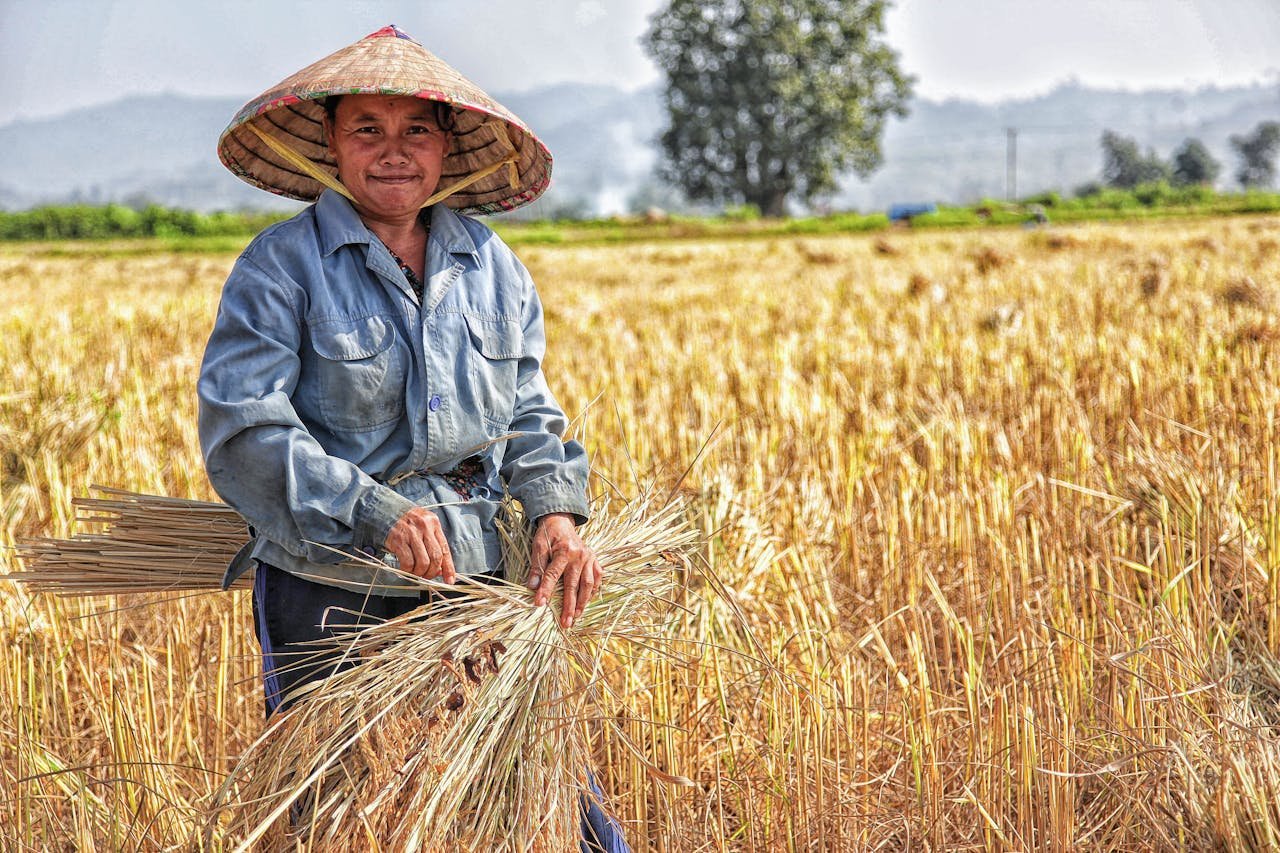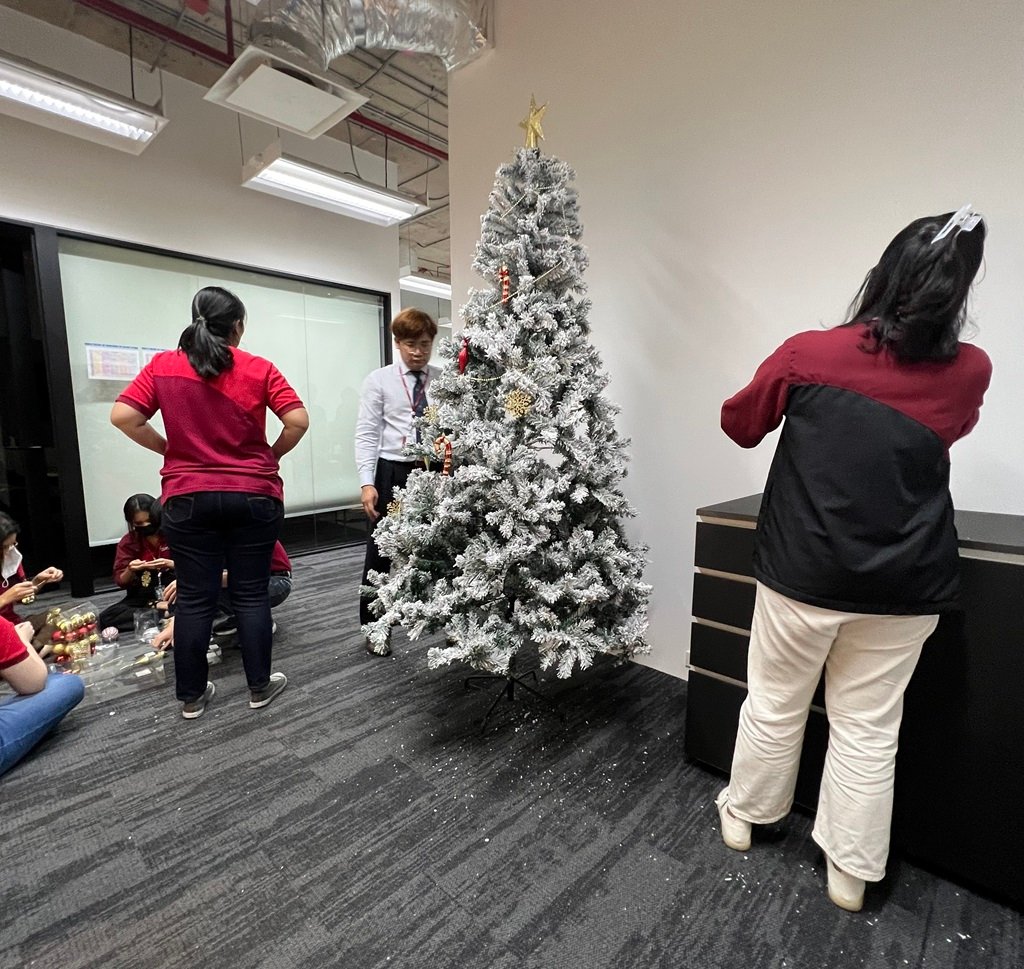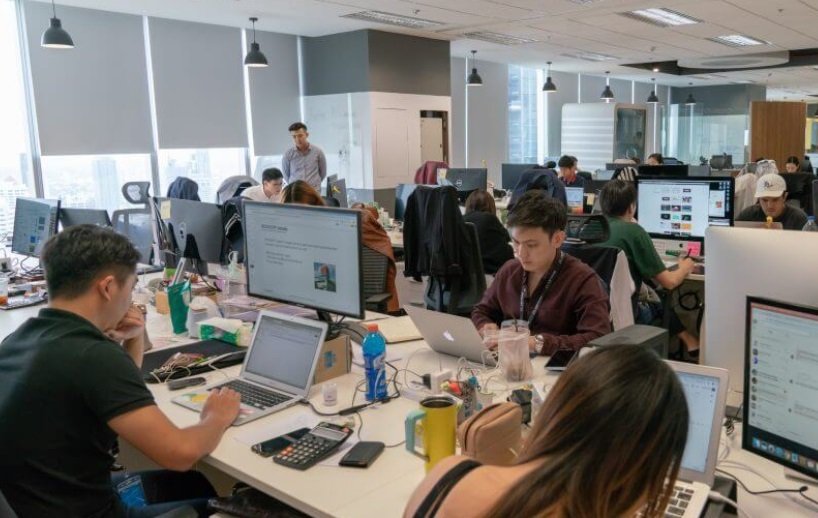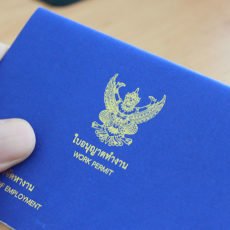Having worked as an expat in Thailand for years, I often get asked: Why Thailand? My journey here started by chance, but over time, I’ve gained some firsthand insights into what makes Thailand stand out. Here’s a breakdown of why Thailand is a compelling choice for expats, compared to other Asian countries, focusing on its economy, work environment, culture, and job prospects.
Table of Contents
Thailand is one of Asia’s most vibrant and diverse nations, with a rich cultural and historical backdrop. Compared to other Asian countries, Thailand offers unique advantages in its economy and work environment. Below, I’ll dive into how Thailand stacks up.
1. Economic Development
Thailand is Southeast Asia’s third-largest economy, classified as a middle-income economy based on GDP.
While its economic growth lags behind developed nations like Singapore, Japan, or South Korea, Thailand’s economy is steadily rising, particularly in manufacturing and services. I started my expat journey in Thailand’s manufacturing sector, and I’ve witnessed this growth firsthand.
In recent years, as costs in China have risen, production hubs have shifted toward ASEAN countries and India. Within ASEAN, Vietnam is often chosen for its low costs, but Thailand stands out for its mature supply chains, making it a top pick for businesses.
Expat Insights: Thailand’s Top Three Industries
Thailand’s economy thrives on three key sectors: agriculture, automotive, and electronics. While agriculture remains a backbone, the automotive and electronics industries heavily rely on foreign investment and technology..
Agriculture
Agriculture is a cornerstone of Thailand’s economy, with roughly half the country’s land used for farming and 70% of the population engaged in agriculture. Key crops include rice, corn, and rubber.
Thailand is the world’s second-largest rice exporter (behind India), playing a major role in Asia, which produces and consumes 90% of global rice.
Automotive Industry – Thailand’s Auto and Motorcycle (Including Parts) Sector
Thailand’s automotive parts industry is a cornerstone of its manufacturing and export economy, playing a vital role in global supply chains. Supported by favorable government policies, robust infrastructure, and a strategic geographic location, Thailand has solidified its position as a leading automotive and parts manufacturing hub in Southeast Asia and beyond.
Thailand is ASEAN’s top automotive manufacturing country, hosting bases for the world’s top five automakers. Known as the “Detroit of the East,” it ranks among the global top ten auto-producing nations. With 16 major carmakers operating factories in Thailand, the country excels in everything from stamping and mold production to high-tech forging. Its mature supply chain ensures Thailand remains a top choice for future investments.
ASEAN’s 600 million-strong population and rapidly growing middle class are driving booming demand for cars and motorcycles. Backed by the government’s “Thailand 4.0” initiative and the “Ten Strategic Industry Clusters” policy, the logistics sector is also upgrading to smarter, more efficient systems.
1. Market Position and Exports
Thailand ranks among the world’s top ten automotive producers, with a robust parts supply chain. In 2023, auto parts exports reached $8.67 billion, and total automotive product exports (including parts) are projected to hit $43.7 billion in 2024.
Key export markets: United States, Japan, Indonesia, Malaysia, and China.
2. Main Products
- Engine & transmission components
- Suspension & brake system parts
- Body & frame parts
- Electronic components (e.g., sensors, control modules)
- Rubber & plastic parts (e.g., seals, gaskets)
3. Key Manufacturing Regions
Eastern Economic Corridor (EEC):Chonburi and Rayong boast the most comprehensive supply chains, with proximity to Laem Chabang Port for easy exports.
Greater Bangkok Area:Home to many long-established parts processing plants and warehousing centers.
Central and Northeastern Regions:Areas like Nakhon Ratchasima (Korat) are emerging as hubs for second-tier parts manufacturers due to lower labor costs.
Thailand’s domestic market favors light pickup trucks and economy cars, with Japanese brands like Toyota and Honda being highly popular. Most Japanese cars and motorcycles are manufactured locally, solidifying Thailand’s status as a regional automotive powerhouse.
The growth of the automotive sector has also spurred related industries. Chinese and Taiwanese companies have set up plastic injection and automotive electronics factories in Thailand to supply major carmakers.
Fun fact: This is why car enthusiasts often tell me they can onlyfind certain aftermarket auto parts in Thailand!
Electronics
Thailand’s electronics industry began with OEM manufacturing and has grown into a major exporter of hard drives, printers, and appliances. With a large pool of skilled engineers and affordable labor, Thailand attracts significant investment from Japanese, Chinese, and Taiwanese firms, making it a key player in the global electronics supply chain.
2. Work Environment
Thailand’s work environment is shaped by its unique “Thai-style” culture, distinct from other Asian countries.Thai people are incredibly friendly and welcoming, showing curiosity rather than exclusion toward foreigners.
This openness creates a relaxed and pleasant workplace for expats.
Additionally, Thailand emphasizes family and social connections. Companies often host parties or social events to foster bonds among colleagues, a tradition that helps expats integrate into the local culture more quickly.
3. Language and Culture
Thailand’s official language is Thai, but its highly developed tourism industry and international business scene make English widely used in commerce and tourism, lowering the entry barrier for foreigners. For example, in Thailand, 60–70 out of 100 locals can communicate in English, compared to 40–50 in Indonesia and only 10–20 in Vietnam.
Still, learning basic Thai is highly recommended for expats to better integrate into the local culture and society.
Thai culture is unique, with distinct religious beliefs, traditions, and food habits. Understanding these cultural nuances helps expats build genuine friendships with locals.
Life for Expats in Thailand
Thailand’s reliance on foreign investment makes it welcoming to expats, with many businesses catering specifically to foreigners. For example, employees of foreign companies can apply for airport fast-track passes for quicker entry and exit. The growing number of Japanese and Chinese restaurants, often equipped with English and Chinese menus, reflects Thailand’s expat-friendly environment.
4. Career/Job Prospects
Compared to other Asian countries, Thailand offers several advantages for job seekers:
1. Diverse Industries:Thailand’s economy spans manufacturing, agriculture, tourism, and services, providing a wide range of job opportunities.
2. Low Labor Costs:Compared to developed nations, Thailand’s labor costs are affordable (the minimum daily wage is up to 492 THB, equivalent to 40–62 THB per hour or about 12,000 THB monthly). This attracts foreign companies to invest, creating more expat opportunities.
3. Stable and Open Business Environment:The Thai government offers incentives and legal protections for businesses, fostering growth and employment. Bangkok hosts numerous foreign companies’ regional offices, driven by significant foreign investment.
4. Strategic Location:Located at the heart of Southeast Asia, Thailand facilitates trade with neighboring countries and serves as a key Asian transport hub, with extensive airport connectivity.
Thailand is an excellent choice for business and expat work in Southeast Asia and beyond. In industries like automotive and electronics, managerial roles are often filled by foreign talent. With management skills, language proficiency, and technical expertise, expats can secure competitive salaries and a comfortable lifestyle in Thailand.
If you’re considering moving to Thailand like I did, check out the resources below for expat stories and insights to help you decide!
🧑🏻💼 Finding Talent in Thailand: Recruitment Resources for Companies
Based on my 8 years of hiring experience in Thailand, I’ve compiled the most effective local recruitment channels and matched them with different company hiring needs.
This helps HR teams choose the right platforms, boost application rates, and connect faster with qualified local talent in Thailand.
- A comparison of job requirements versus Thai market expectations.
- Seven key methods/platforms for job postings in Thailand.
- Guidance on where to post job openings to attract the right candidates.
- Increase the chances of receiving applications from the right candidates.
- The Thailand Recruitment Resource Guide- is available for only 30USD. If you’re interested, feel free to reach out via :FB.
Articles on Expats in Thailand:
👨🏽💻 Thailand Expat Workplace
【外派長期評估】Considering Long-Term Career Development in Thailand as an Expat
【Job Hunting in Thailand】Are There Many Expat Job Opportunities in Media/Photography? Industry Talent Demand Analysis
【Long-Term Expat Assessment】Where Does the Courage to Work Abroad Come From?
【Hiring in Thailand】A Recruiter’s Perspective on Hiring Bilingual Talent in Thailand
【Expat Training】Corporate Training Seminars for Expats in Thailand
【Expat Daily Life】Secrets to Fitting In at a Thai Workplace
【Thai Colleagues】Workplace Observations: Understanding Local Colleagues in Thailand
🚆 Bangkok Vacation Transportation
【Getting Around】Common ways to navigate Bangkok’s city traffic.
【Airport Transfers】Private car transfers from BKK/DMK airports to Bangkok city hotels.
【Bangkok Ride-Hailing】Comparing Thai taxis vs. Grab—which is more cost-effective?
【First-Time Visiting Thailand?】Get One-day Bangkok sightseeing passes
【Taking the Train in Bangkok】Experiencing Thailand’s railways—waiting for trains on the tracks!
⛱️ Expat Life Perks! Join Local Day Tours & Explore Attractions
【Must-See for 1st-Timers】Floating Market Day Tour from Bangkok: Damnoen Saduak, Maeklong Market & Amphawa Fireflies Cruise
【Thai Costume Experience】One Day - SENSE OF THAI Costume Rental Experience
【20K+ Rave Reviews】Let’s Relax Spa – Bangkok’s Award-Winning Massage & Spa
【Complete Thailand Golf Guide】A Full Overview of Thailand’s Golf Courses
【Bangkok Golf】Introduction to Bangkok Golf Courses, Prices, and Booking
【Pattaya Golf】Pattaya Golf Courses: Top Picks, Prices, Rankings & Booking Guide
【Chiang Mai Golf】Total Guide to Chiang Mai Golf Courses, Recommendations, Prices, Rankings, and Booking
⚙️Useful Tools for Travelers in Thailand
【Unlimited Internet in Thailand】The most popular eSIM and SIM card options among travelers.
【Luggage Delivery】Luggage Concierge | Same-day delivery from BKK Airport to hotels in Bangkok.
🍜 Bangkok Food
【Unique Thai Snacks】Exotic Thai Street Food Experience
【Top Buffet】Copper Beyond Buffet at Gaysorn Amarin – A World-Class Culinary Experience
【Classic Thai Seafood】Great Harbour International Buffet Dining Experience at ICONSIAM
【Michelin Restaurants】20 Must-Visit Michelin Dining Experiences in Bangkok | 2024 updated
【Classic Thai Seafood】Discover Thailand’s Best Coastal Eateries
【Michelin Thai Buffet】Market Café by Khao at Hyatt Regency Bangkok Sukhumvit – Enjoy $90 Worth of Dishes for $24
【Thai Local Delicacies】Experience Thailand's street food stalls! How to say "not spicy" in Thai?
【Bangkok's Best-Kept Sweet】Top 10 Hidden Gem Dessert Cafes in Bangkok
🛏️ Business Trip Accommodation in Bangkok
【Bangkok Hotels】Recommendations for 20 high-value hotels in Bangkok (including low and high season prices).
😎 About Me
I have been stationed in Thailand for many years (seeAbout me), speak Thai, and serve as your local insider guide. Feel free to join my Facebook Page:LiangYu in Thailand - Eight Years as an Expat in Thailand, Firsthand Insights into Thai Life, where we can share experiences about work, life, travel, and business in Thailand.
☎ Reservation Services for Thai Restaurants, Hotels, and Golf
Most reservations for Thai restaurants, itineraries, and vacation apartments in Thailand require a local Thai bank account for booking. (Popular cafes in Thailand like the Maldives-themed Bubble in the Forest Cafe and many unique accommodations outside major cities, such as those in the Pilok area of Kanchanaburi, often do not have online booking and payment mechanisms.) If you needassistance on booking or order thai goods, please reach out on :Facebook







